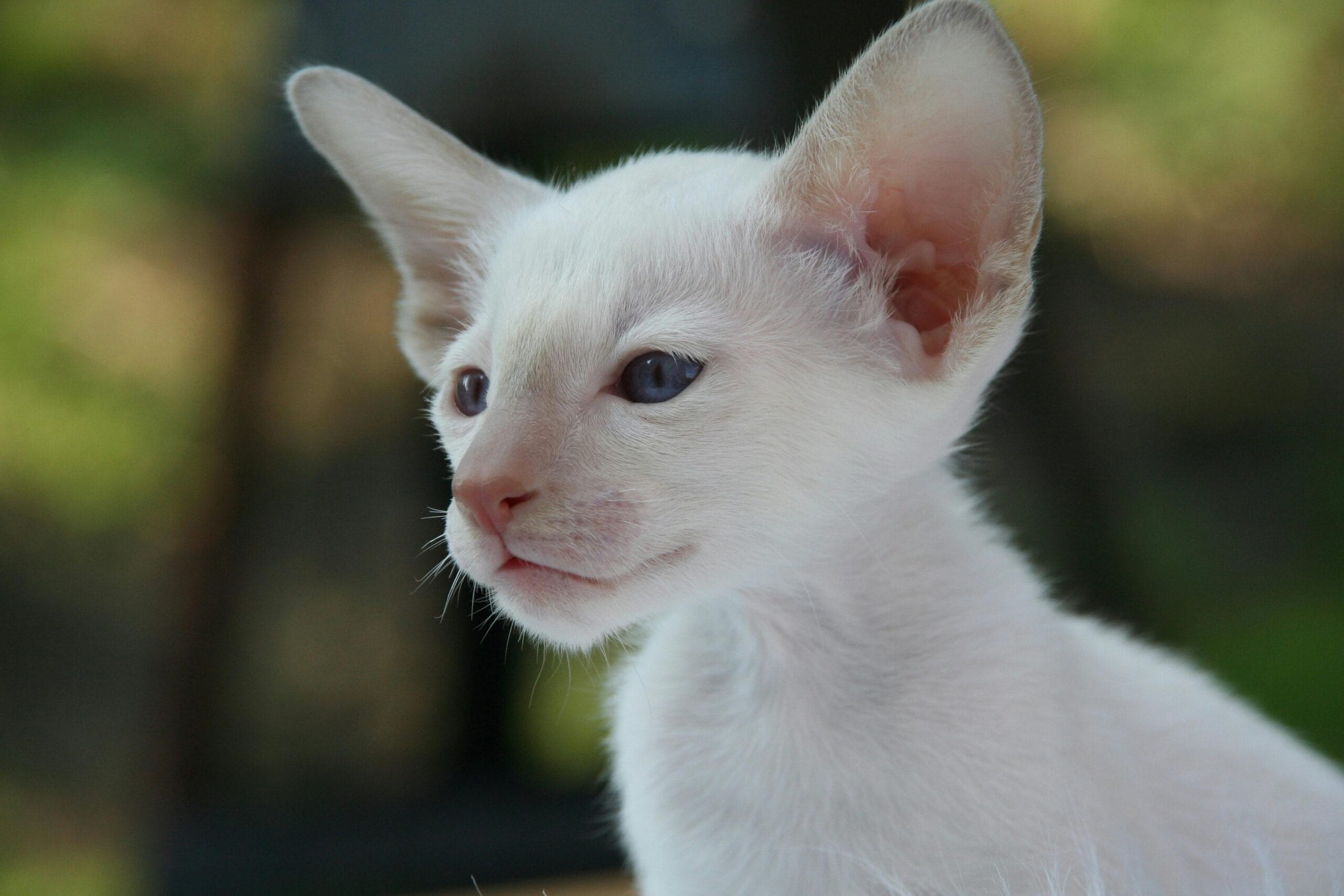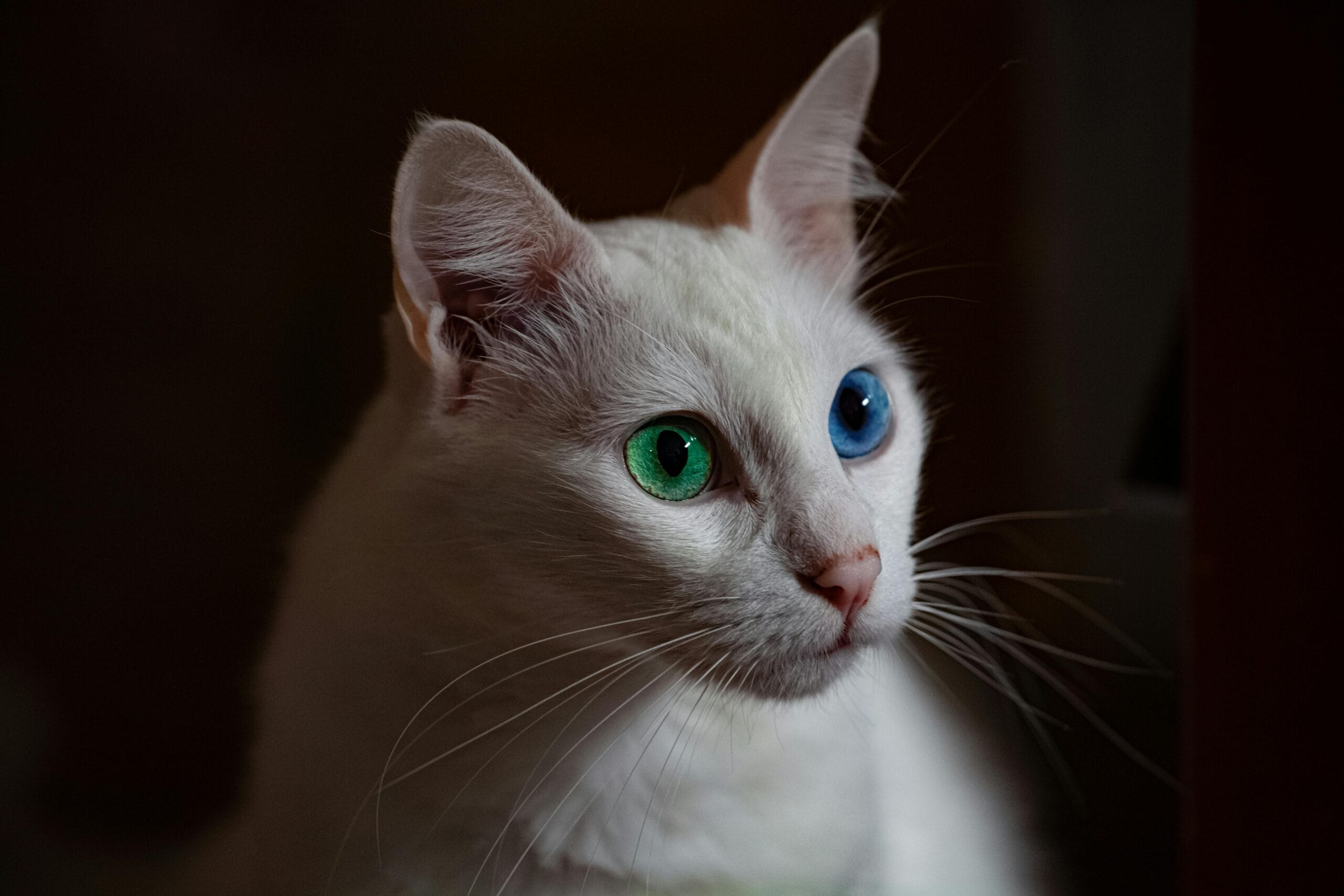When Do Kittens Stop Growing ?

When do kittens stop growing? Discover kitten growth stages & learn when your furry friend reaches adult size. Get expert insights & track your kitten’s development!
When Do Kittens Stop Growing? A Comprehensive Guide to Kitten Growth Stages
One of the most frequently asked questions by new kitten owners is: When do kittens stop growing? The answer isn’t a simple number of months or years. Kitten growth is a fascinating process, divided into distinct stages, each with its own milestones. Understanding these kitten growth stages will help you provide the best possible care for your furry friend and anticipate their eventual kitten adult size.
The Neonatal Stage: The First Few Weeks
The neonatal stage, lasting from birth to about two weeks, is a period of rapid development. Kittens are entirely dependent on their mother during this time, relying on her for warmth, nourishment, and cleaning. Their eyes and ears remain closed, and their primary focus is on survival. Weight gain is significant, and you’ll see noticeable changes in size even within a few days. At this stage, observing the kitten’s weight gain and health is critical, and any concerns should prompt immediate veterinary attention. This stage lays the foundation for their future health and development.
Transitional Stage: Weeks 2-4
Weeks two through four mark the transitional stage. Kittens begin to open their eyes and ears, becoming more aware of their surroundings. They start to crawl and take their first unsteady steps. Their motor skills improve dramatically, and their playful instincts begin to emerge. Their teeth start erupting, marking a shift from entirely liquid nutrition to solid food. During this period, you might notice an increase in their activity levels and a growing curiosity about their environment. The rate of weight gain continues to be substantial.
Socialization Stage: Weeks 4-8
The socialization stage, spanning from four to eight weeks, is critical for a kitten’s development. This period is when they develop their social skills, learning to interact with their littermates and humans. They’re incredibly playful during this phase, actively exploring their environment and engaging in mock hunting behaviors. Proper socialization during this time is key to ensuring a well-adjusted adult cat. If you are adopting a kitten at this age, ensuring positive interactions and a safe environment is paramount. If you’re concerned about your kitten’s socialization, a consultation with a veterinarian or a certified cat behaviorist can provide invaluable guidance. You can find more information about kitten socialization on the website of the ASPCA.
Rapid Growth Stage: Weeks 8-24
From eight weeks to approximately six months (24 weeks), kittens experience a period of rapid growth. Their bodies lengthen, their muscles develop, and their adult features start to become more defined. This is a time of significant weight gain, especially during the first few months. They may even undergo a growth spurt in this timeframe, resulting in a sudden increase in size and appetite. During this phase, providing a balanced diet that is appropriate for growing kittens is essential. A high-quality kitten food, formulated to meet their nutritional needs, should be a staple in their diet. At this point, their playfulness is at its peak. They engage in more complex games, testing their coordination and agility. They develop their unique personalities. Monitoring their weight gain and overall health is crucial, especially considering they are vulnerable to various health issues during this time.
Slowing Down: Months 6-12
By six months, the rate of growth significantly slows down. While they will continue to grow, it will be at a much more gradual pace. Their bodies are shaping into their adult form, and their adult teeth have fully replaced their baby teeth. Their energy levels may still be quite high, but their growth spurts become less frequent. At this stage, you’ll start getting a better sense of their likely kitten adult size. However, there might still be subtle changes in body proportion and muscle mass, even as late as a year. Nutritional needs shift slightly at this point; a transition to adult cat food may be warranted, depending on your veterinarian’s recommendation. You can find further information regarding kitten nutrition from the American Veterinary Medical Association website.
Reaching Adult Size: When Do Kittens Stop Growing Completely?
Most kittens reach their full adult size and weight by around one year of age. However, some breeds might continue to fill out slightly until they’re 18 months old. The final kitten adult size depends on factors such as breed, genetics, and overall health. Small breeds will naturally be smaller than large breeds. While growth slows considerably after 12 months, their bones might continue to slightly harden and their muscles might continue to develop throughout their early adulthood. Therefore, while one-year-old is a good estimate, it is not necessarily an absolute end to growth for all kittens.
Factors Affecting Kitten Growth
Several factors can influence a kitten’s growth and final size. Genetics play a significant role, determining the potential size range for a given breed. Nutrition is equally crucial. A balanced diet rich in high-quality protein, essential fats, and vitamins ensures optimal growth. Underlying health conditions can also impact growth; any concerns about your kitten’s development should be discussed with your veterinarian. Environmental factors like stress and access to proper resources also contribute to your kitten’s growth. A stimulating and safe environment promotes healthy development, while stress and lack of resources could have negative effects.
Monitoring Your Kitten’s Growth
Regularly monitoring your kitten’s weight and overall health is essential. Weighing your kitten weekly or bi-weekly allows you to track its growth progress and identify any potential problems early on. You should also monitor their appetite, activity levels, and overall demeanor. Any sudden changes in these areas should be brought to your veterinarian’s attention promptly. Your veterinarian can provide guidance on ideal weight ranges for your kitten’s breed and age, enabling you to identify any potential nutritional deficiencies or growth issues early. A regular veterinary check-up schedule, beginning early on, is highly beneficial in preventing any future health problems.
Breed Variations in Kitten Growth
It’s crucial to remember that different breeds mature at different rates. Small breeds, like Singapura or Munchkin, generally reach their full size earlier than larger breeds, such as Maine Coons or Ragdolls. These larger breeds, known for their substantial adult size, tend to grow for longer, with some showing significant size increases until they are closer to two years old. This breed variation highlights the importance of considering your kitten’s specific breed when evaluating its growth trajectory. Understanding breed-specific growth patterns aids in providing tailored care and ensuring their nutritional needs are met throughout their developmental stages. Further information on specific breed growth characteristics can usually be found on breed-specific websites or through reputable cat breed organizations.
Understanding the Importance of Proper Nutrition During Kitten Growth Stages
Nutrition plays a pivotal role in a kitten’s development, affecting not only their size but also their overall health and well-being. A diet specifically formulated for kittens, offering the right balance of protein, fat, vitamins, and minerals, is vital for supporting their rapid growth and development. This balanced nutrition ensures proper bone development, muscle growth, and the optimal functioning of all their vital systems. Switching to adult food too early could result in nutritional deficiencies, potentially hindering their full growth potential or causing other health complications. Consulting with your veterinarian regarding the best diet for your kitten’s age, breed, and health status is always recommended to ensure you’re meeting their unique nutritional requirements. The International Cat Care website offers valuable resources on feline nutrition.
Conclusion: When Do Kittens Stop Growing – A Summary
To summarize, there isn’t a single definitive answer to “When do kittens stop growing?” Most reach their full adult size and weight by one year of age, but some larger breeds may continue to grow subtly until 18 months. The journey is a fascinating progression through different kitten growth stages, each with its own unique needs and characteristics. By understanding these stages, you can ensure your kitten receives the proper care and nutrition to reach its potential kitten adult size and thrive throughout its life.
What has been your experience with your kitten’s growth? Share your stories and insights in the comments below! We’d love to hear about the milestones you witnessed and the joys of watching your little one grow into a magnificent adult cat. Let’s discuss your kitten growth stages and adult sizes!

Frequently Asked Questions: When Do Kittens Stop Growing?
1. Q: When do kittens stop growing completely?
A: Most kittens reach their adult size by around 1 year old. However, some breeds may continue to fill out slightly until they’re 18 months old. This is why understanding the different kitten growth stages is important.
2. Q: What are the key kitten growth stages?
A: Kitten growth can be broadly divided into stages: Neonatal (0-2 weeks), Transitional (2-4 weeks), Socialization (4-14 weeks), Juvenile (14 weeks – 6 months), and Adolescent (6 months – 1 year). Each stage has significant developmental milestones. Understanding these stages helps predict your kitten’s growth trajectory.
3. Q: How can I estimate my kitten’s adult size?
A: There’s no perfect formula, but you can get a good estimate by observing your kitten’s growth rate during the first few months and considering the adult size of its parents (if known). Breed standards also provide a general range for adult size.
4. Q: My kitten is 6 months old, is it fully grown?
A: No, most likely not. While significant growth happens in the first 6 months, the final stage of kitten growth (adolescence) continues until around 1 year of age. At 6 months, your kitten is likely still approaching its adult size.
5. Q: Does spaying/neutering affect a kitten’s growth?
A: Spaying or neutering can sometimes slightly affect growth, often resulting in a slightly larger adult size. This effect is generally minor compared to genetic factors.
6. Q: My kitten is smaller than expected for its breed. Is something wrong?
A: Consult your veterinarian. Small size could be due to various factors like poor nutrition, underlying health issues, or even simply being on the smaller end of the breed’s size range.
7. Q: My kitten is much bigger than expected for its breed. Is that normal?
A: While less common, it’s possible. Again, consult your vet to rule out any underlying health problems. Genetic variations within a breed also exist.
8. Q: When should I start feeding my kitten adult cat food?
A: Typically, you can switch to adult cat food around 1 year old, once your kitten has reached its adult size. However, always follow the recommendations on the kitten food packaging.
9. Q: How can I tell if my kitten’s growth is healthy?
A: Monitor your kitten’s weight and size consistently. Consult your vet if you notice any significant deviations from the expected growth trajectory for its breed or concerning health changes. Consistent veterinary checkups during the kitten growth stages are crucial.
10. Q: What factors influence a kitten’s adult size?
A: Genetics play the largest role, determining the breed’s typical adult size range. Nutrition also plays a crucial role – good nutrition supports healthy growth. Health issues can also impact the attainment of their full adult size. Therefore, a proper diet and veterinary care are essential throughout the kitten growth stages.

When Do Kittens Stop Growing? A Guide for Cat Owners
Understanding a kitten’s growth stages is crucial for providing optimal care. While there’s no single answer to “when do kittens stop growing,” it’s a gradual process influenced by breed, genetics, and nutrition.
Key Growth Stages & Practical Tips
0-2 Months: Rapid growth phase. Focus on high-quality kitten food, multiple small meals daily, and plenty of playtime. Regular vet checkups are essential for vaccinations and parasite prevention.
2-6 Months: Continued rapid growth, but the pace slows somewhat. Transition to kitten food formulated for their age. Continue monitoring weight gain to prevent obesity. Provide ample enrichment through toys and climbing structures.
6-12 Months: Growth slows significantly. Many kittens reach adult size by this stage, though some larger breeds may continue growing slightly longer. Gradually transition to adult food. Spaying/neutering is typically recommended around this time.
1 Year Onwards: Most kittens have reached their adult size and weight. Continue providing a balanced diet appropriate for their age and activity level. Regular veterinary checkups remain vital for ongoing health monitoring.
Health Considerations
Monitoring Weight: Regularly weigh your kitten and compare it to breed-specific growth charts. Sudden weight loss or gain can indicate underlying health issues. Consult your vet if you have concerns.
Nutritional Needs: Providing a complete and balanced diet tailored to their growth stage is critical. Avoid feeding table scraps or foods unsuitable for cats. Consult your veterinarian about the best food options.
Vaccinations and Parasite Prevention: Follow your vet’s recommendations for vaccinations and parasite control. Kittens are vulnerable to various diseases and parasites during their growth stages.
Dental Care: Start early with dental hygiene practices like brushing your kitten’s teeth regularly to prevent dental issues later in life.
Socialization: Proper socialization during kittenhood is vital for their development into well-adjusted adult cats. Expose them to different sights, sounds, and people in a controlled manner.
Breed Variations
Remember that breed size significantly influences growth timelines. Smaller breeds tend to reach their adult size faster than larger breeds. Consult resources specific to your kitten’s breed for more detailed growth information.
Disclaimer: This information is for general guidance only and does not substitute professional veterinary advice. Always consult your veterinarian for personalized recommendations regarding your kitten’s health and development.